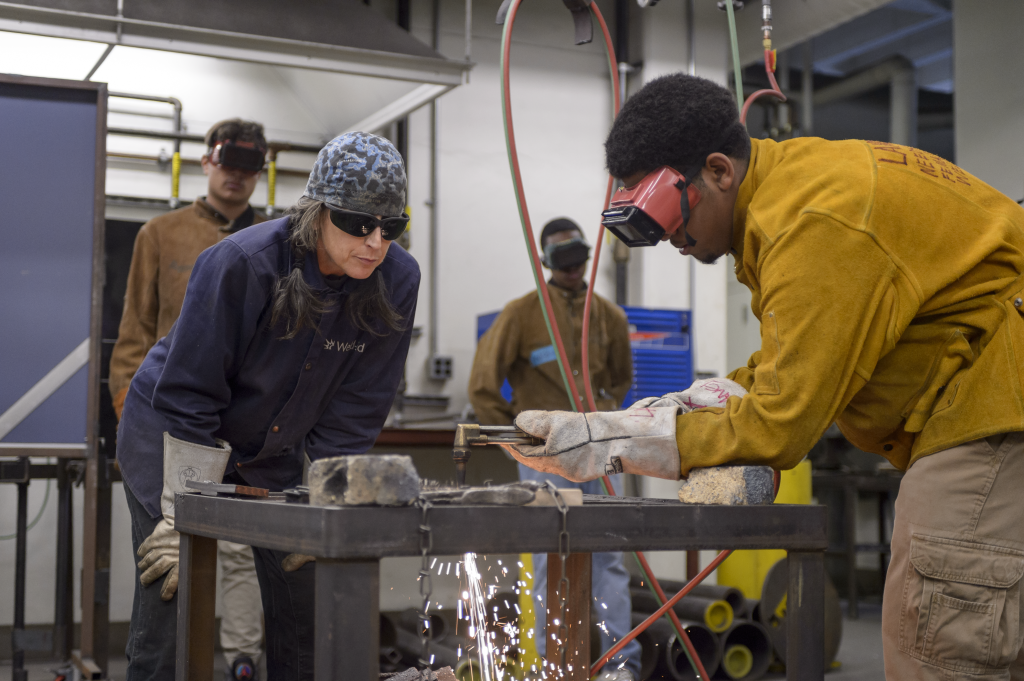Career Technical Education courses help students thrive

Whether you are new to the country or simply hitting a dead-end in your current job, finding a new career on your own can seem overwhelming: What field should you choose? How do you obtain the necessary hands-on training? What credentials are required?
This is where Career Technical Education through Northern Alameda Adult Education Collective (NAC) can help.
“I’ve been teaching structural welding since 2003,” says Liisa Pine Schoonmaker, Welding Professor and Department Chair for Laney College. “I quickly realized what an impact trade skills can have to an individual, both personally and professionally.”
“It became my mission to find new ways to get this education to people who could really take advantage of it,” she says.
Students of all kinds do better with their basic skills once they engage in a Career Technical Education class.
Liisa Pine Schoonmaker
Welding Professor and Department Chair, Laney College
The five-week NAC summer course combines GED Math with two trade skills, such as carpentry and welding.
“The students spend the first two-and-a-half weeks in one skill, then move to the other, while math is taught throughout,” says Schoonmaker, adding that both a career instructor and an adult education instructor team-teach the course. “Our class is primarily a survey course, meant to expose the students to the environment and some basic tasks of a given trade.”
If a student likes the technical work, that alone is invaluable for moving ahead with career decisions. “This gives them an idea of which trade they may want to pursue, since there is a huge variety and picking the wrong one could be disastrous,” says Schoonmaker, in terms of wasted time and money. The unique combination of Career Tech and Adult Basic Ed can also help accelerate entrance into the field.
“They will then enter that trade at a higher level of (technical) skill, and perhaps a higher wage,” she says. “Additionally, most trade unions and many entry-level jobs now require at least a high school diploma or a GED. [Students’] options become much more abundant once they get one of those credentials.”
Finally, hands-on training can in and of itself be a positive experience for people, especially those who are not as comfortable with books and papers. “Some students just don’t do their best in a classroom setting,” says Schoonmaker. “Giving them tools and a project can relieve some of the stress of that setting and lets a different part of their brain get involved in their learning. So often, students of all kinds do better with their basic skills once they engage in a Career Technical Education class.”
Written by Thea Marie Rood
| Regions | Classes & Topics |
|---|---|
| Bay Area California | Careers in Manufacturing-Construction |